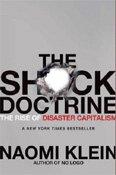Inflight Magazine of Brussels Airlines
Welcome to the Inflight Magazine of Brussels Airlines
In session
Text Matt Bochenski
Images Getty Images, Rex Features
A round-up of the top films, music releases and books heading your way this month
ERIK VAN LOOY
Director Erik Van Looy
Starring Laura Verlinden, Jan Decleir, Veerle Baetens
 With his 2003 film The Memory of a Killer, Erik Van Looy announced himself as his country’s most commercially successful director – Belgium’s very own Brian Singer. Now he’s back, with the hotly anticipated Loft in which five married men keep an apartment for their mistresses. All goes well until the day a body turns up, but who is to blame? We spoke to the only man who knows: Erik himself.
With his 2003 film The Memory of a Killer, Erik Van Looy announced himself as his country’s most commercially successful director – Belgium’s very own Brian Singer. Now he’s back, with the hotly anticipated Loft in which five married men keep an apartment for their mistresses. All goes well until the day a body turns up, but who is to blame? We spoke to the only man who knows: Erik himself.
How would you describe Loft in your own words?
It’s a whodunit, a classic thriller, I hope. It’s very elegant and one of the good things about it is that it also asks a lot of questions about adultery and friendship and human relationships.
What kinds of films inspired you?
I like movies like Fatal Attraction – ‘couple thrillers’ I call them, where both husband and wife can go to see them and they might have a discussion afterwards. The writer, Bart De Pauw, is a big fan of The Usual Suspects, which is his favourite movie of all time.
What about directors who influenced your style, which is quite commercial and American?
It’s shot in a style that I would describe as Adrian Lyne meets Michael Mann meets Hitchcock meets De Palma – although, of course, for less money. But we tried to give it an element of visual style.
If I could reach to the ankles of De Palma or Hitchcock I would already be happy – I would already be good.
Presumably you didn’t get the idea for the story from real life?
No! It’s not like every Belgian has this scheme going on. It’s just these five guys.
Waltz With Bashir
Director D Ari Folman
 Ten minutes into Ari Folman’s Waltz With Bashir, it’s easy to see why this animated documentary blew away critics at the Cannes Film Festival. There’s never been a film like it, its evocative animation masking a tale of brutal realism.
Ten minutes into Ari Folman’s Waltz With Bashir, it’s easy to see why this animated documentary blew away critics at the Cannes Film Festival. There’s never been a film like it, its evocative animation masking a tale of brutal realism.
Twenty-four years before Israeli tanks rolled across the border into Lebanon in July 2006, the two countries had already fought their own version of the Vietnam War, an ugly conflict defined by street fighting and religious differences. But Bashir isn’t a war film – although its images of violence are harrowing and direct – it’s a psychological exploration of the mark this violence left on the body of one people and the mind of another.
Folman, a teenager when he went to war, was provoked by a friend’s nightmares. He, too, had recurring dreams, yet his memories of those days are almost entirely absent. His journey into his own psyche takes us deep into the folds of history, ending at the Sabra and Shatila refugee camps in Beirut and the horrors that took place there. This is an utterly compelling film that mustn’t be allowed to get sidetracked by the usual Israel/Palestine dichotomies.
Book club
Doors Open
by Ian Rankin
 No sooner has Scottish crime legend Ian Rankin put Detective John Rebus to bed than he’s back with a new thriller. Doors Open is the story of Mike Mackenzie, a rich, bored middle-aged soul with too much time on his hands. So, in true Thomas Crowne fashion, he decides to plot the perfect crime.
No sooner has Scottish crime legend Ian Rankin put Detective John Rebus to bed than he’s back with a new thriller. Doors Open is the story of Mike Mackenzie, a rich, bored middle-aged soul with too much time on his hands. So, in true Thomas Crowne fashion, he decides to plot the perfect crime.
That crime involves robbing the National Gallery of Scotland, home to such famous Scottish artists as, um, well… Still, he doesn’t just plan to rob it, but to do it with such flair and élan that he’s going to convince the world that nothing has been taken. Ignoring the fact that this would be more easily achieved by not actually taking anything in the first place, Mike gets together with two art world insiders and puts his plan in motion.
Rankin can write better crime stories in his sleep than most other writers on a good day. Doors Open is a beautifully paced and engrossing drama that proves there’s life left yet in this old master.
Metallica
 Death Magnetic
Death Magnetic
Metallica, those monsters of the European metal circuit, are back with a racket with Death Magnetic, their ninth studio album.
For most bands, the ninth album isn’t usually a defining point in their careers – ensconced as they are in a life of hedonistic rock luxury – but for Metallica this is something of a comeback. It’s their first album since 2004’s epic documentary Metallica: Some Kind of Monster showed the group falling apart at the seams while trying to record album number eight. St. Anger ended up taking two years and several nervous breakdowns to produce. The film also showed the band auditioning and hiring new bassist Robert Trujillo, who makes his official debut at last.
So, after all that, what about the music? After facing accusations of losing their way with St. Anger (hardly surprising when your frontman is in therapy for alcoholism and can only record four hours a day), especially for the use of snare drums and the absence of guitar solos, Death Magnetic sees the band get right down to business, eight-minute metal wig-outs and everything.
Ne-Yo
The Year Of The Gentleman
 There’s been some bold talk from R ’n’ B crooner Ne-Yo before the release of his third album. “Nowadays it’s very much: ‘Hey everybody, look at me!’ whereas back in the day it was: ‘I’m so cool, you’re gonna look at me anyway, so I’m not going to over endear myself to get you to look at me,’” he says. And there’s more: “You look at the singers, you look at the rappers and they look exactly alike. You don’t know who’s doing what. Everybody’s jeans are hanging half way out their butt and it’s not a classy look.”
There’s been some bold talk from R ’n’ B crooner Ne-Yo before the release of his third album. “Nowadays it’s very much: ‘Hey everybody, look at me!’ whereas back in the day it was: ‘I’m so cool, you’re gonna look at me anyway, so I’m not going to over endear myself to get you to look at me,’” he says. And there’s more: “You look at the singers, you look at the rappers and they look exactly alike. You don’t know who’s doing what. Everybody’s jeans are hanging half way out their butt and it’s not a classy look.”
So, Ne-Yo, self-appointed ‘mum’ of the urban music scene, whatcha gonna do about it? Release
The Year Of The Gentleman, that’s what – a self-conscious throwback to the high-style days of Frankie, Sammy and Nat King Cole, when men wore proper slacks and women… well… you didn’t have to think about women at all.
Still, Year Of The Gentleman is a coolly sophisticated new sound for a performer who, at heart, is always going to be a poor man’s Michael Jackson. Songs like Lullaby, Breakin’ Up and In Luv pretty much speak for themselves, but Ne-Yo’s smoother-than-silk vocals give everything a suitably saccharine gloss – just make sure it doesn’t rot your teeth.
Book club
The Shock Doctrine by Naomi Klein
 No Logo made Naomi Klein the poster girl of the globalisation movement (those pouty lips didn’t hurt either), but The Shock Doctrine takes it to a whole new level. This book isn’t just an eye opening polemic, but an eye-watering account of the modern capitalist condition and how a clique of powerful men is destroying the world.
No Logo made Naomi Klein the poster girl of the globalisation movement (those pouty lips didn’t hurt either), but The Shock Doctrine takes it to a whole new level. This book isn’t just an eye opening polemic, but an eye-watering account of the modern capitalist condition and how a clique of powerful men is destroying the world.
The contention is this: a generation of economic ideologues, inspired by hard-right guru Milton Friedman, have spent the past 30 years infiltrating the World Bank and IMF in order to push their dodgy dogma. To wit: screw the people – it’s the markets that must be free. Klein makes a bold case that, wherever this economic doctrine has raised its head, the people have lowered theirs beneath the yoke of dictatorship. Why? Because the good of the market is against the interests of the masses. They simply wouldn’t take it in a democracy.
Heady stuff! The usual criticism of Klein – that she’s not an economist so doesn’t ‘understand’ these things – may apply, but this book could change your view of the world.
Leave a Reply
